




In Year 9, students reach an exciting point in their educational path where they start to focus their learning efforts into areas they find most interesting and enjoyable Our Key Stage 4 provision at JESS follows a GCSE/IGCSE programme The GCSEs are a British examination system to be completed at age 16 IGCSEs are international adaptations of the same qualification and carry the same significance with educational institutions worldwide. They may differ in content, approach or style of assessment. Our Heads of Department have selected the best course for JESS students; some have chosen GCSE qualifications and others IGCSEs.
The information within this booklet will give students an idea of what studying each subject entails, how they will be assessed, and what potential jobs and degrees are available by choosing specific subjects. Students will have received their latest report for Year 9, which should be read closely and discussed with parents. Are there areas needing to be worked on in order for students to follow their preferred route? Students should speak to their teachers to ask their opinion about taking a subject at GCSE, particularly during the Parent Teacher Conference on Tuesday January 7th 2025 Students will make their choices in the week beginning Monday 20th January 2025. This will be done digitally – an email will be sent to each student nearer the time with instructions and a link.
Subject selections are structured to ensure students study a range of subjects that give a strong foundation for the different pathways that we run at JESS The green subjects in the diagram opposite make up the core and all students must study these They are accompanied by non-examined courses in the centre of the circle. The option subjects are shown in blue.
Some students may find it difficult to choose their subjects and others may find it simpler We encourage students to discuss their options and make solid academic decisions Choosing a subject because a friend is or because they like their current teacher, are not a good reasons If students know what they want to study at university, they need to ensure they choose subjects that lead to their preferred pathway. If students do not know what they want to do in life, that is ok too. In this case, we recommend selecting a range of subjects that use different skills, that they are good at and enjoy.
Tutors, the Head of Year and teachers are available to give academic counselling about combinations or breadth of choices. Please contact Bryony Lynch blynch@jess.sch.ae or Graham Black gblack@jess.sch.ae to ask questions by email or to request a meeting.
All students study for up to 9 GCSE qualifications in Year 10: Five come from English Language, English Literature, Mathematics and Combined Science To ensure a level of challenge, some students will study additional GCSEs in Mathematics and Separate Science which will take the number of GCSE qualifications to 8 and 11.
Arabic (compulsory part of UAE curriculum in Y10)
Plus 3 Additional Option Choices
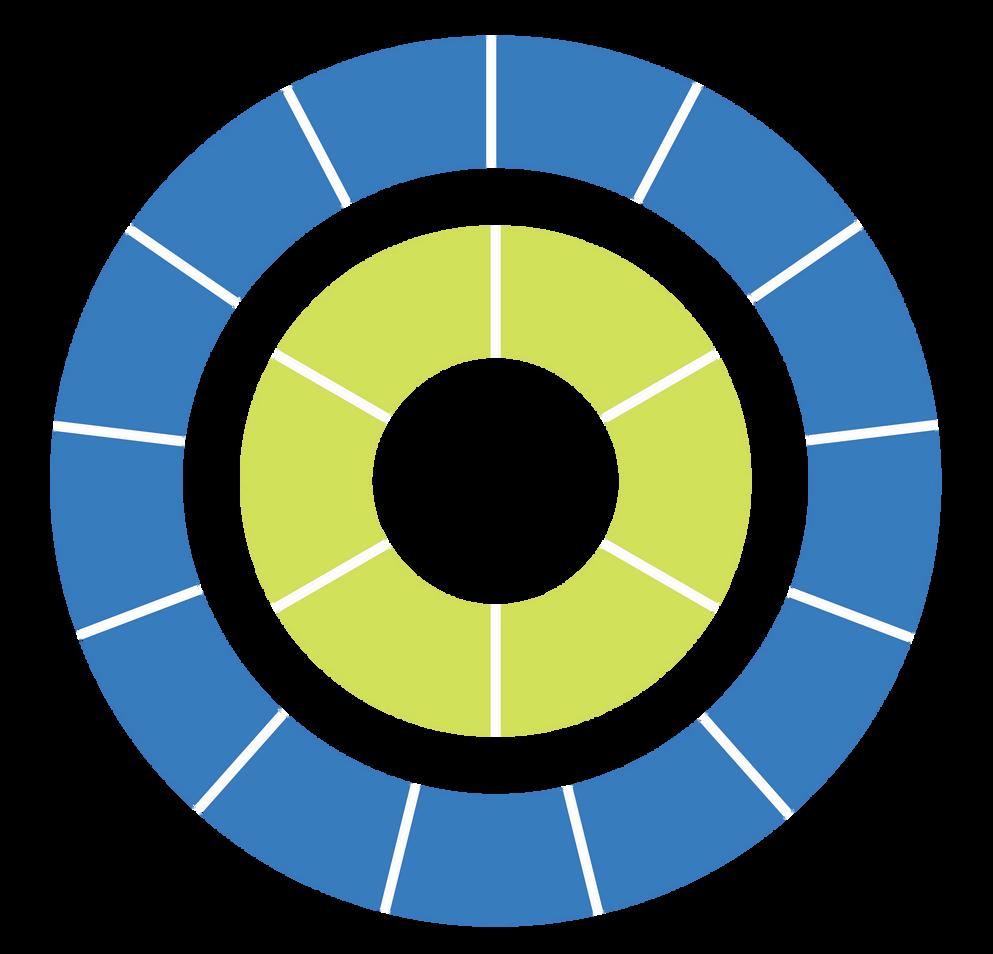
Biology,
Art &
Business
English
Games, Moral, Social and Cultural Studies
Arabic
Design
Students can select the three options that best fit their aspirations without any restrictions (see options above). However, to maintain a broad and balanced curriculum that enables a successful transition onto the IB Diploma Programme in Year 12 and Year 13, we strongly recommend students select an option from the humanities subjects (Business Studies, Economics, Geography, History or Psychology) Additionally, please note the requirement to study a Modern Foreign Language to GCSE level – if French or Spanish is not selected, Arabic will need be studied until the end of Year 11.
Thursday 5th December 2024
Tuesday 7th January 2025
Thursday 9th January 2025
Monday 20th to Sunday 26th January, 2025
Term 3 2025
Full report and options booklet to students and parents
Year 9 PTC and options information evening
8:00am Alternate pathways coffee morning – invite only
Year 9 Options window open A link will be posted on the Year 9 team for students to complete
Options confirmed and core subject pathways confirmed
Arabic A
Arabic A is provided for students with a registered GCC passport This is a compulsory course in UAE schools and follows a national programme which concludes in Year 13. Students who follow this programme and wish to take the IB Diploma in the Sixth Form must also complete a GCSE in Arabic in Year 11, alongside their other subjects.
Arabic B
Arabic B is provided for students with non-GCC passports and is compulsory for all in Year 10. Those who opt to do the GCSE, will be taught in specific groups that will continue through to Year 11. Students wishing to take the GCSE Arabic can opt for this in addition to the three option choices For those students who choose not to pursue the GCSE qualification in Year 11, there will be an option of completing an alternative qualification in Arabic or attending additional Prep sessions
Please note that no early entry will be permitted for Arabic A or B students to take their GCSE.
Our students are particularly well placed to excel in this subject, having had many years of Arabic education. Arabic enables students to:
Meet people from different countries and find out more about them
Add an international dimension to your choice of GCSE subjects, which is something many employers and higher education providers want
Have greater opportunities to work and/or study abroad, or work for companies in the UK or US with international links
Discuss your interests, ideas and opinions with other people who speak Arabic
Learn more about Arabic countries where the language is spoken, and the people who speak it
What is the course content?
GCSE Arabic helps you explore a wide range of topics, from celebrations and festivals, through getting by as a tourist in Arabic-speaking countries to international campaigns and events. You will learn about Arabic culture through a range of interesting topics that will add to your understanding of the language and country
The five themes are:
1. Identity and culture
2. Local area, holiday, travel
3 School
4 Future aspirations, study and work
5. International and global dimension.
How will the students be assessed?
You will take four exams: listening, speaking, reading, and writing, worth 25% each You can take foundation or higher level Students must complete their speaking assessment in April and all other assessments in May/June.
What skills will the students develop?
Students who complete a GCSE in Arabic will learn many skills which are useful in a wide range of careers, such as the ability to communicate clearly, be confident about speaking in public, use problem-solving strategies and write coherently. This qualification will certainly add an extra dimension to your personal skills profile which will impress anyone who reads your CV. This will put you in a stronger position to get a job in companies with international links or improve your employability if you would like to work abroad. It is an obvious advantage to being able to work or study in an Arabic-speaking country in later life, but you will also find it easier to learn other languages Completing a GCSE qualification in Arabic is the foundation for studying Arabic courses in Sixth Form to further your knowledge of the language and culture
What jobs/degrees are available to students who study your subject?
The skills developed by students who study languages, particularly those in a different script to their native tongue, show skills to universities and employers which are not developed elsewhere in the curriculum Students who might not consider studying the subject directly at university may choose to add it as a minor, e.g., Business Management with Arabic. Studying Arabic opens a wide range of opportunities for students interested in teaching the language, working countless jobs here in the Middle East. They can be a representative for companies which requires the ability to speak the language
Islamic Studies is compulsory for all students who are registered as Muslim. Students not required to study Islamic will complete preparatory work (Prep) at this time
Examination Board Specifications :
Edexcel IGCSE English Language (Specification Here)
Edexcel IGCSE English Literature (Specification Here)
Studying English will help students develop the ability to think critically and creatively, to express themselves with confidence and coherence, and to combine deep understanding with personal engagement in their responses to language and literature The course is designed to promote excellent achievement within the skill areas of speaking, listening, readingand writing. As a result of their analysis of a variety of stimulating texts, our students develop a critical understanding of how meaning is shaped both in works from the literary heritage of diverse cultures, and in non-fiction. It will also support cross-curricular achievement and provide an excellent skills base for lifelong learning
iGCSE English Language (4EA1) and English Literature (4ET1) (2 GCSE Qualifications)
Language: Single tier of entry
Exam 60%
2 Hrs 15 Mins
Section A: Reading Compaprison of 1 nonfiction text from Part 1 iGCSE English Anthology and 1 unseen text
Section B: Transactional Writing
Choice of 2 tasks, which could be article, letter, speech writing, etc.
Assessing writing for audience, purposes, tone, style and register as well as SPaG.
Written Coursework 40%
2 submissions
Section A: Reading Prose and poetry texts from Part 2 of the iGCSE English Anthology One essay question based on any two poetry prose texts and a 6 mark commentary on why these texts were selected.
Section B: Imaginitive Writing 1 30 mark task.
Course set texts: Edexcel Anthology for English
Literature: Single tier of entry
Exam 60% 2 Hrs
Section A: Unseen Poetry
1 20-mark essay question exploring the meaning and effects created in an unseen poem
Section B: Anthology Poetry
1 30-mark essay question from a choice of 2, comparing two poems from Part 3 of the Pearson Edexcel International GCSE English Anthology.
Section C: Modern Prose
1 40-mark essay question from a choice of 2 on each of the set texts*.
To Kill a Mockingbird Harper Lee Of Mice and Men John Steinbeck
The Whale Rider Witi Ihimaera
They Joy Luck Club Amy Tan
Things Fall Apart Chinua Achebe
Coursework 40%
2 Submissions
Assignment A: Modern Drama
1 essay response to a teacher-devised assignment on the studied text
Assignment B: Literary Heritage Texts
1 essay response to a teacher-devised assignment on the studied text.
Literature exam texts*: Chosen at teacher’s discretion
Course Overview and Assessment Points:
English has two GCSEs for which the student will receive two separate grades: Language and Literature. The English Language and English Literature courses are comprehensive, with a focus on improving communication, understanding, and analytical skills.
Assessments will include one examination and two coursework assignments for English Language, and one examination with two coursework assignments for English Literature.
Examination components
English Language – written examination: 2 hours 15 minutes (60% of the final grade)
English Literature - written examination: 2 hours (60% of the final grade)
Section A: Unseen Poetry, Section B: Anthology Poetry, Section C: Modern Prose (60%)
What skills will the students develop?
The courses build on the skills which have been embedded in Key Stage 3 in a continuum of learning. Students are encouraged to respond to fiction and media texts with both breadth, in an understanding of the impact of their cultural contexts, and depth, in an appreciation of the effect of stylistic devices They are given opportunities to write for a wide range of purposes and audiences, in tasks which promote expressive fluency as well as ensuring a firm foundation of technical accuracy
What jobs/degrees are available to students who study your subject?
Both courses will provide an excellent grounding for any arts or humanities-based degree Literature will complement further studies in higher education courses such as literature, philosophy and law, while Language and Literature lend themselves well to media and journalism.
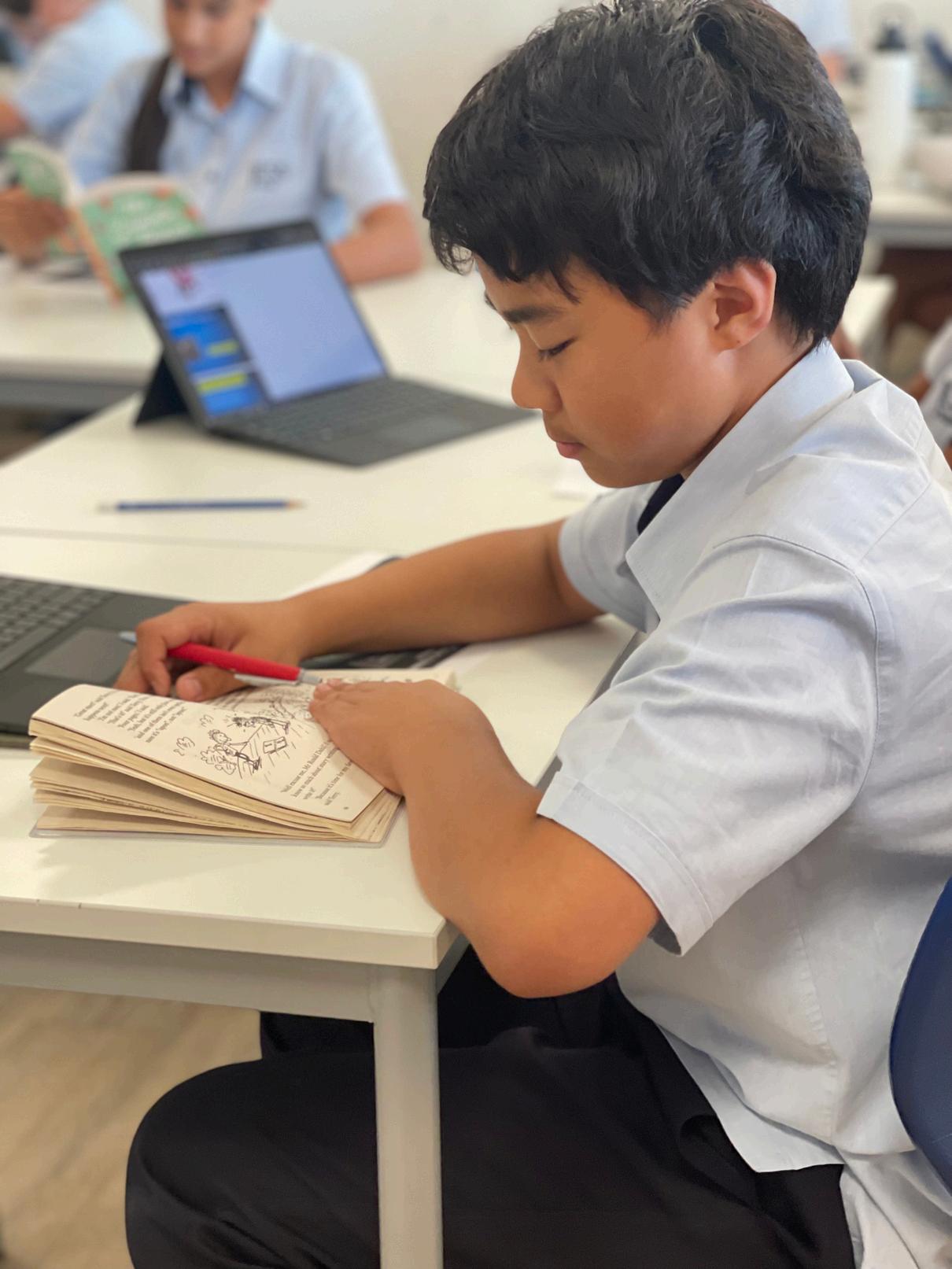
Examination Board : Edexcel IGCSE Mathematics (Specification Here)
What is the course content?
The Edexcel IGCSE Mathematics course consists of four key subject areas:
Geometry
Understand the distinction between expressions, equations and formulae
Use algebra to set up and solve problems, using letters instead of numbers
Demonstrate manipulative skills
Construct and use graphs
Use properties of angles
Understand a range of transformations
Understand ideas of space and shape
Use ruler, compasses and protractor appropriately
Understand the concept of statistical averages
Statistics
Use a range of statistical techniques
Use basic ideas of probability
How will the students be assessed?
At the end of Year 11, students will sit two exams, each paper 2 hours long with 100 marks
What skills will the students develop?
Students will develop skills in problem-solving, analysing data, communication, logical/critical thinking and attention to detail, which are important in everyday life They will do this by? making deductions and drawing conclusions from mathematical information constructing chains of reasoning presenting arguments and proofs interpreting and communicating information accurately.
What jobs/degrees are available to students who study your subject?
Studying Mathematics will open a wide variety of degrees and career opportunities. Each year at JESS, many of the departing Year 13 cohort leave to study either engineering or economics. Other common Mathematics based careers/degrees include investment banking, intelligence analysis, operational research, statistical research, logistics, financial analysis, market research (for business), management consultancy, IT (systems analysis, development or research), software engineering, computer programming, teaching, the public sector (advisory capacity as a scientist or statistician), scientific research and development (e.g., biotechnology, meteorology or oceanography).
Examination Board : Option 1 – Edexcel IGCSE Further Pure Mathematics (Specification Here)
Option 2 – AQA GCSE Further Mathematics (Specification Here)
To ensure the correct level of challenge for all, we offer some students an additional qualification in Further Mathematics This teaching is provided during standard lesson time Further Mathematics does not constitute part of the options process and is offered at the discretion of the school. For more information on this please contact Head of Maths, Miss Charlotte Baker cbaker@jess.sch.ae
We offer two courses: Edexcel IGCSE Further Pure Mathematics and AQA Level 2 Certificate in Further Mathematics. Both are rigorous and will enable students to take their knowledge and understanding to a deeper level. The decision as to which course students are entered for is at the discretion of school.
What is the course content?
See specifications linked above as course content varies between Edexcel and AQA courses
How will the students be assessed?
Edexcel IGCSE Further Pure Mathematics – Two papers, each 2 hour hours long Each paper contributes 50% of the marks The total number of marks for each paper is 100 A calculator may be used
AQA Level 2 Certificate in Further Mathematics – Two papers, each 1 hour 45 minutes long. Each paper contributes 50% of the marks. The total number of marks for each paper is 80. Paper 1 is non –calculator and paper 2 is calculator
What skills will the students develop?
Further Mathematics gives students the opportunity to achieve their mathematical potential, develop skills for life, and help progress to further mathematical courses at IB level and beyond. Skills include: selecting and applying mathematical techniques and methods to mathematical, every day and real-world situations develop problem-solving skills by translating problems in mathematical or non-mathematical contexts reasoning mathematically interpreting and communicating a wide array of mathematical information develop reasoning skills through exercises such as presenting arguments and proofs, and making deductions and drawing conclusions from mathematical information. The course also extends students’ base in Mathematics from which they can progress to higher studies in Mathematics as well as engineering, science, economics, information technology or business
What jobs/degrees are available to students who study your subject?
Mathematics qualifications will open a wide variety of degrees and career opportunities. Common Mathematics based careers and degrees include investment banking, intelligence analysis, operational research, statistical research, logistics, financial analysis, market research (for business), management consultancy, IT (systems analysis, development or research), software engineering, computer programming, teaching, the public sector (advisory capacity as a scientist or statistician), scientific research and development (e.g. biotechnology, meteorology or oceanography.
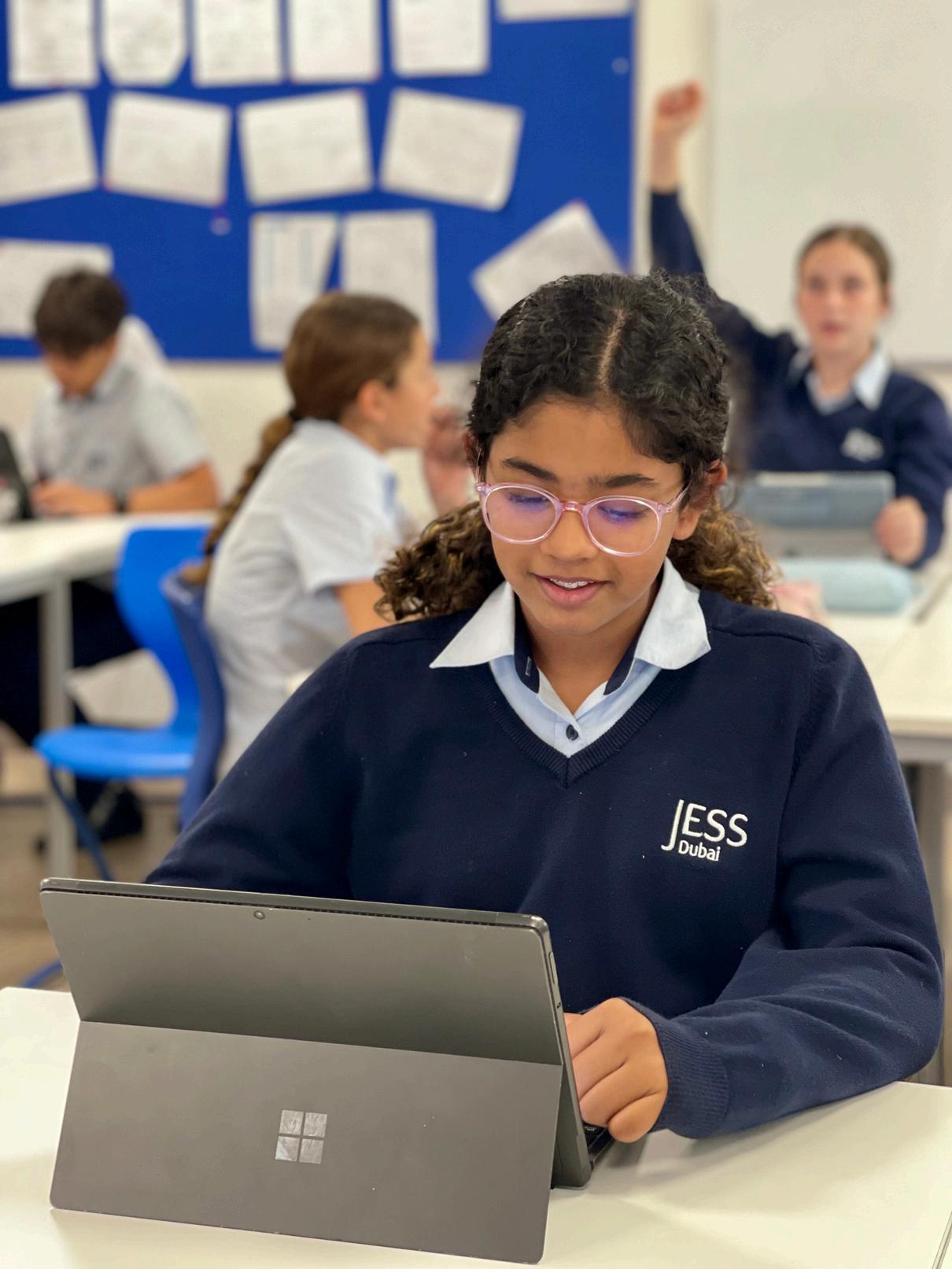
All students at JESS study three sciences, Biology, Chemistry and Physics, taught by a specialist teacher. Students sit GCSE examinations in all three sciences, and the results are reflected as a Combined Science GCSE (worth 2 GCSEs)
To ensure the correct level of challenge for all our students, we also offer some students either BTEC Applied Science or GCSE Separate Sciences. BTEC Applied Science and Separate Sciences do not form part of the options process and are offered on the advice of the school Students are guided and advised by the Science Department on which pathway is most suitable for them The Separate Science course covers more material to a slightly higher level The BTEC pathway offers an alternative route that is solely based on coursework.
For more information, or any Science related queries, contact Mrs Patricia Coffey pcoffey@jess.sch.ae
Examination Board: Edexcel GCSE Combined Science (Specification Here)
Why should a student study Science?
“Science knows no country because knowledge belongs to humanity and is the torch which illuminates the world ” (Louis Pasteur)
Combined Scienceis a thorough, challenging, and rewarding course that develops students' scientific skills and understanding. Science is changing our lives and is vital to the world’s future prosperity. All students should learn essential aspects of the knowledge, methods, processes and uses of science They should gain appreciation of how the complex and diverse phenomena of the natural world can be described in terms of a small number of key ideas that are both inter-linked and of universal application
What is the course content?
This course covers a range of accessible science content. There is a huge variety in the concepts covered and something for all interests
Motion, forces, conservation of energy, waves, electromagnetic spectrum, radioactivity, forces and their effects, electricity and circuits, magnetism and the motor effect, particle model, forces and matter.
States of matter, chemical changes, extracting metals and equilibria, groups in the Periodic Table, bonding, rates of reaction, fuels, energy changes, bonding, earth science, acids and alkalis, electrolysis.
Biology
Cells and control, genetics, natural selection and genetic modification, health and medicine, plant structures, animal coordination, homeostasis, exchange and transport, ecosystems.
How will the students be assessed?
Combined scientists sit two exam papers in each of the sciences: Biology, Chemistry and Physics. Students will therefore sit a total of six examination papers. The exams will contain multiple-choice, structured, closed short answer and open response questions Each examination is 70 minutes long and has a total of 60 marks. Each individual paper will account for 1/6 of the Combined Science marks. Students will attain two GCSE grades in a qualification called Combined Science, where 9-9 is the highest, followed by 9-8, 8-8 and so on
What skills will the students develop?
The Pearson Edexcel GCSE (9–1) in Combined Science requires students to develop the skills, knowledge and understanding of working scientifically This includes the development of scientific thinking, experimental skills and strategies, analysis and evaluation, scientific vocabulary, quantities, units, symbols, and nomenclature. Working scientifically will be assessed through examination and the completion of the core practical activities.
What jobs/degrees are available to students who study your subject?
Studying Science will open a wide variety of degrees and career opportunities; careers in the health and clinical professions, nursing, sports, forensic science as well as several exciting opportunities in the world of research
By succeeding in such a varied subject as Biology the opportunities that become open to you are endless. Employers love problem solvers, and your GCSE in Biology will prove that you have these skills Industries employing biologists include scientific and medical research, forensics, medicine, nursing, pharmacology, dentistry, veterinary science, paramedic, ecologist, nutritionist, personal trainer, biochemical engineer, environmental conservation and education.
The Chemistry course provides an excellent foundation for careers in a variety of professions including medicine, dentistry, and forensic science Studying Chemistry will also prepare students for industry careers, such as those within the pharmaceutical or petrochemical sectors and diverse fields such as environmental sciences, materials, energy, oceanography, aerospace, law, and education.
Physics can lead you on to careers in areas such as aerospace and defence, education, energy and renewable energy, engineering, health and medicine, instrumentation, manufacturing, meteorology and climate change, nanotechnology, oil and gas, telecommunications and architecture.
Examination Board:
Edexcel GCSE Biology (Specification Here)
Edexcel GCSE Chemistry (Specification Here)
Edexcel GCSE Physics (Specification Here)
These courses are only completed by those students in the top sets Eligibility for the top sets, and these courses, is determined at the end of Year 9 Student potential is established from their attitude in class, work ethic and performance in assessments. Separate Science is demanding but will allow students to attain three GCSEs in Biology, Chemistry and Physics.
All the content from the Combined Science course is covered within Separate Science with additional content added to stretch the most able scientists.
•Motion, forces, conservation of energy, waves, radioactivity, electromagnetic spectrum, forces and effects, electricity and circuits, magnetism and motor effect, particle model, forces and matter.
• PLUS astronomy, ultrasound, nuclear energy, electric fields, pressure in fluids
•States of matter, chemical changes, extracting metals, equilibria, groups in the Periodic Table, bonding, rates of reaction,electrolysis, energy changes, fuels and earth science, acids and alkalis.
• PLUS tests for ions, fuel cells, calculations involving volumes of gases
• Cells and control, genetics, natural selection and genetic modification, health and medicine, plant structures, animal coordination, homeostasis, exchange and transport, ecosystems.
•PLUS kidneys, brain and spinal cord, food tests, protein synthesis
The Separate Science course consists of three standalone GCSE courses which attain individual grades: Biology GCSE, Chemistry GCSE and Physics GCSE. Each course has two examination papers. The exams will contain multiple-choice, structured short answer and long response questions.
Each examination is 1 hour and 45 minutes long and has a total of 100 marks Each paper contributes 50% to the final Level for that science. Practical skills will be continually trained and assessed throughout the course. There is a series of core practical activities that students are required to complete, plus additional experience for them to develop their practical skills The core practical tasks are assessed during the written examinations
In Separate Sciences, you will develop your critical thinking skills by making judgements based on experimental observations You will also develop problem solving skills by applying these concepts in different contexts There will be opportunities for data analysis in which reasoning, and interpretation skills can progress. There will also be chances to become innovative and develop creativity when faced with situations in an unfamiliar context. These skills are very sought after by many employees.
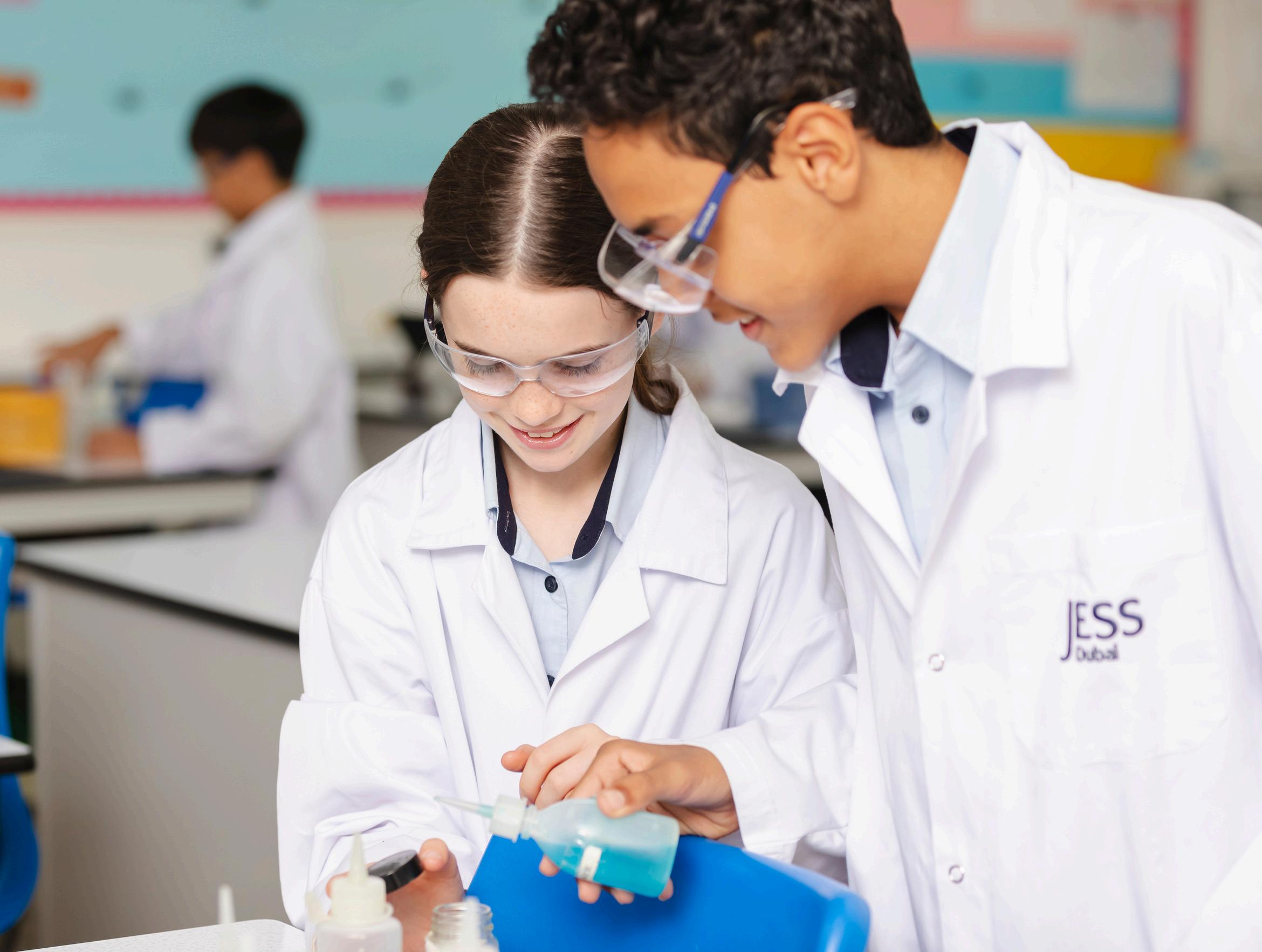
Examination Board : Pearson (Specification Here)
Applied Science draws on knowledge developed across the GCSE science curriculum and applies it to a real-world capacity.
What is BTEC?
BTEC’s enable a learner-centred approach to education, with a flexible, unit-based structure and knowledge applied to project-based assessments. BTECs focus on the holistic development of the practical, interpersonal and thinking skills required to be successful in employment and higher education
What is the course content?
Equivalent in size to two IGCSE. Four units that are mandatory, and one unit is assessed by a Pearson Set Assignment Mandatory content (25%)
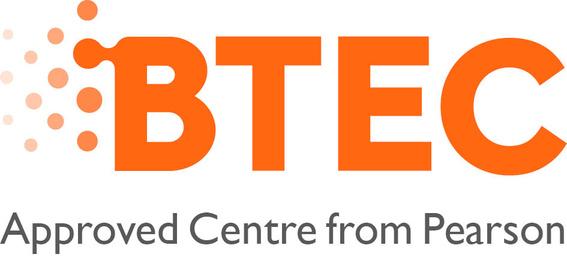
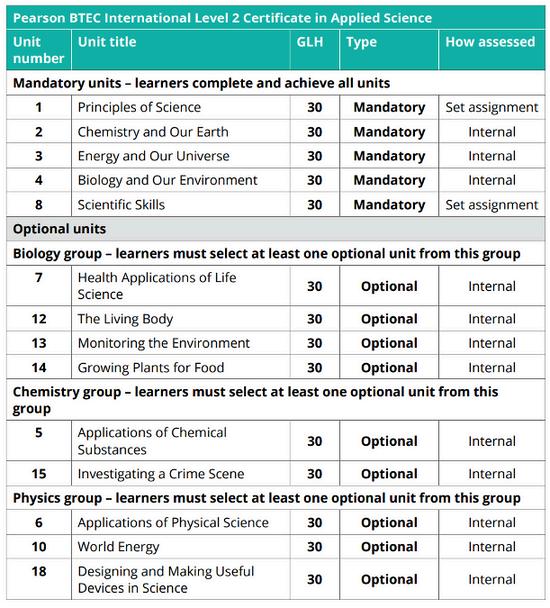
How will the students be assessed?
BTEC International Level 2 qualifications are assessed using a combination of internal assessments, which are set and marked by teachers, and Pearson Set Assignments, which are set by Pearson and marked by teachers
• Mandatory units have a combination of internal and Pearson Set Assignments
• All optional units are internally assessed
What skills will the students develop?
Students studying this course develop a wide range of skills that are directly applicable to further study in highereducationor in a workplace environment, includingtime management, self-evaluation, presentation and problem-solving skills as well as applied practical skills.
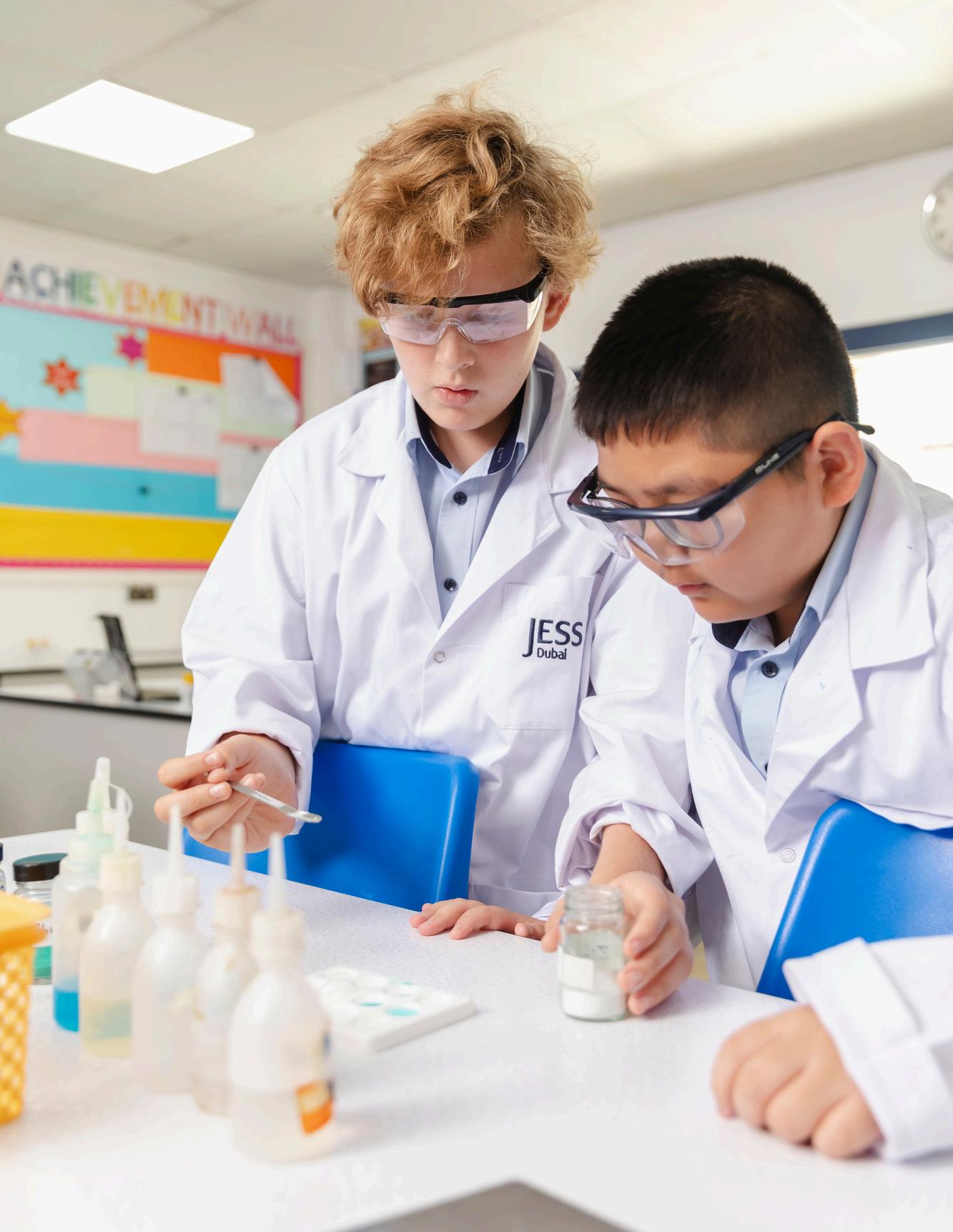
Examination Board : Edexcel GCSE Art and Design (Specification Here)
Why should a student study Art?
Art is not concerned with merely great artists, with genius or with prodigious skills It is fundamentally, the outward form of an inward search Anyone can join in To participate in this search, on whatever level and with whatever ability, is to be a JESS artist The most valuable aspect of Art is not always the final product but the search itself. Art has a vital role to play in developing creativity, sensibility and sensory motor co-ordination in everyone.Our philosophy at JESS is that evolution is integral to a healthy, dynamic and thriving department
What is the course content?
The course focuses on many avenues including fine art, textiles, graphics, photography, illustration, digital media, design, critical analysis and visual literacy Creativity is rooted in critical thinking which is taught within the GCSE Art course Throughout all projects, students are taught how to process their ideas from initial findings through to final fruition
How will the students be assessed?
One fundamental question that is always asked is how do you assess Art? Is it down to taste or personal preferences? We assess work regularly against the GCSE assessment matrix, simultaneously giving feedback which will benefit the student to expand on their own creative output Students consistently review and discuss their work with other members of the department and peers, building their confidence, individuality and awareness of their own practice as artists. Coursework makes up 60% of the final grade and the remaining 40% is a practical exam in which students follow the same processes that they have developed throughout the coursework period of Year 10 and the beginning of Year 11
What skills will the students develop?
Along with the practical skills, such as drawing, painting, photography, sculpture and mixed media skills, students will gain a very strong insight into the artworld Rendering a 3D form onto a 2D surface is something that requires very different skill sets to many subjects Art reflects each student’s direct and indirect understanding of society and through studying the subject it enables students to develop a critical and questioning approach to everything that happens around them. Art teaches students to question beyond what they know; skills they will keep for the rest of their lives
What jobs/degrees are available to students who study your subject?
The creative industries are huge and make billions of pounds per year in the UK alone. Personal research into this will give you a clear idea of this ever-growing industry. Our past JESS Art students are studying across the world in highly acclaimed institutions associated within the Arts We have sent students to such universities as Central St Martins, Goldsmiths, Edinburgh and Glasgow School of Art in the UK to Columbia in New York and Savannah College of Art and Design in the US. We also have students studying in Australia, Italy and Canada.
We encourage you to watch these films to gain an insight into the importance of Art and how valuable and important it is to the way we function today
Why Study Art? - Tate

Examination Board : Edexcel IGCSE Business (Specification Here)
Why should a student study your subject?
Business Studies involves discovering why and how businesses are set up, what they aim to achieve and how they do it It is designed to provide a grounding in the world of Business and the ability to calculate and interpret business data and the communication skills needed to support arguments with reasons. Edexcel focuses on real life businesses so every time a new topic is taught it will be done through examples of businesses that you already know and love!
• Introducing the purpose of business activity and how to classify businesses. Enterprise and entrepreneurs, growth of firms and how business size can be measured, types of business organisation, business and stakeholder objectives are included
•Focuses on different external influences such as interest and exchange rates and how these impact on a business
•Focuses on human resources, including the importance and methods of motivating a workforce. How businesses are organised and managed, methods of recruitment, selection and training of employees and methods of communication
How will the students be assessed?
•Includes the role of marketing, the distinctions between niche and mass markets, market research, the marketing mix and marketing strategies.
•Includes the methods of production, how productivity can be increased, business costs, break-evenb analysis, location and methods of achieving quality in the production process
•Covers sources of business finance, cash-flow forecasting and working capital. Simple income statements, statements of financial position and the analysis of accounts, including why and how accounts are used
There are two exams that are 90 minutes each. Students will be tested on their knowledge, understanding, application, analytical and evaluation skills in Paper 1: Investigating Small Businesses and Paper 2: Investigating Large Businesses
Each paper will have a variety of questions including MCQs, 2- and 3-mark definition questions, calculation questions, and analysis and evaluation essay style questions worth up to 12 marks.
What skills will the students develop?
This IGCSE helps students to gain lifelong skills, including the ability to calculate and interpret business data, communication skills needed to support arguments with reasons and the ability to analyse real life business situations and reach decisions or judgements. The course balances a thorough knowledge and understanding of Business and helps to develop the skills learners need for their next steps in education or employment
What jobs/degrees are available to students who study your subject?
The current top universities for studying Business related degrees in the UK are Oxford, Cambridge, Durham, Warwick and the London School of Economics Further afield, Harvard, Yale, MIT, Stanford in the USA and Bocconi University in Italy and HEC, Paris in France are excellent for Business courses Studying Business at GCSE provides a foundation for many degree courses such as business management, international business and qualifications in accounting and finance. Business Studies leads on to a wide variety of potential careers such as accountancy, banking, investment and financial services, general management, personnel management, management consultancy, public relations, retail management, sales and marketing
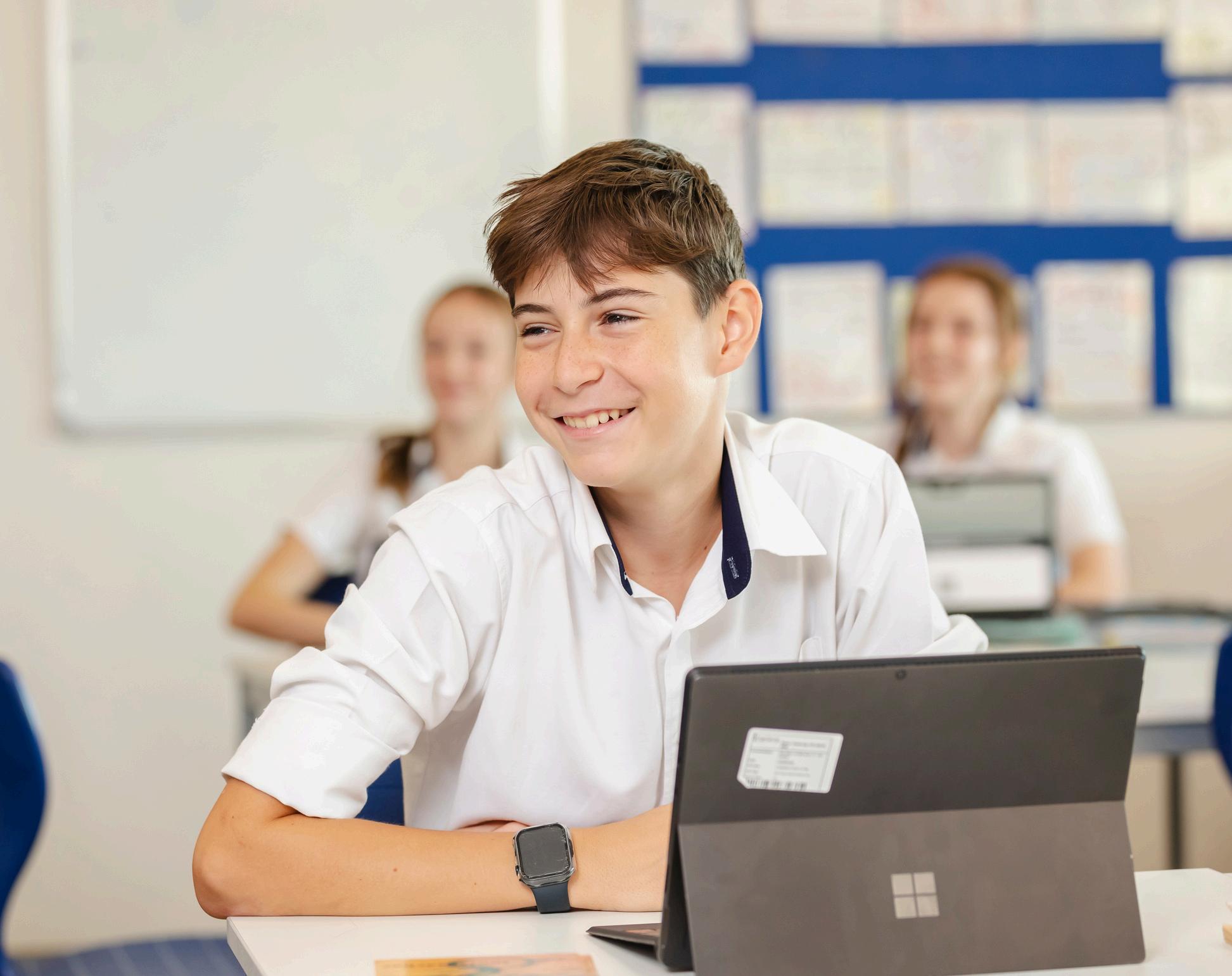
Examination Board : Edexcel GCSE Computer Science (Specification Here)
Why choose Computer Science?
The world has changed When you enter the world of work in approximately 2030 all jobs will look different to today We have already seen the rise of automation, artificial intelligence and rapid introduction of the metaverse The Digital era is here and you need the right skillset to thrive You will need a skillset to understand computers, show innovation and creativity and be able to solve problems. These concepts sit at the core of GCSE Computer Science.
What is the course content?
1. Computational Thinking
• Developing problemsolving skills
4. Networks
• Understand how data gets from one computer to another
2. Data
• Uncover how a computer stores data
5. Issues & Impact
• Investigate emerging trends and consider ethics of surrounding technology
What skills will the students develop?
3. Computers
• Look inside a computer and discover how it works
6. Programming
• Use Python to solve complex problems
During the Computer Science course, you will build upon some of the skills you will already be familiar with including the basis of solving problems using computational thinking You will learn to solve complex scenarios using abstraction, decomposition and algorithms and use this understanding to build programs in Python. You will understand how a computer stores data and create programs that can read and write to and from files.
What jobs/degrees are available to students who study your subject?
Industry is looking for people with creativity, innovation, a forward thinking mind and those who can provide solutions. A qualification in Computer Science allows you entry into a wide range of fields including Computer Science, Medicine, Engineering, Design, Project Management, Systems Analysts, Aeronautical engineering among many others
How will the students be assessed?
Paper 1: Principles of Computer Science
50% of the qualification
75 marks
Written 1 5-hour exam on Topics 1-5
Mixture of question types including multiple choice, short, medium and long responses as well as diagrammatical answers
Paper 2: Application of Computational Thinking
50% of the qualification
75 marks
Online 2-hour exam on Topic 6
A programming assessment where you will use your programming skills to solve a variety of problems that increase in complexity.
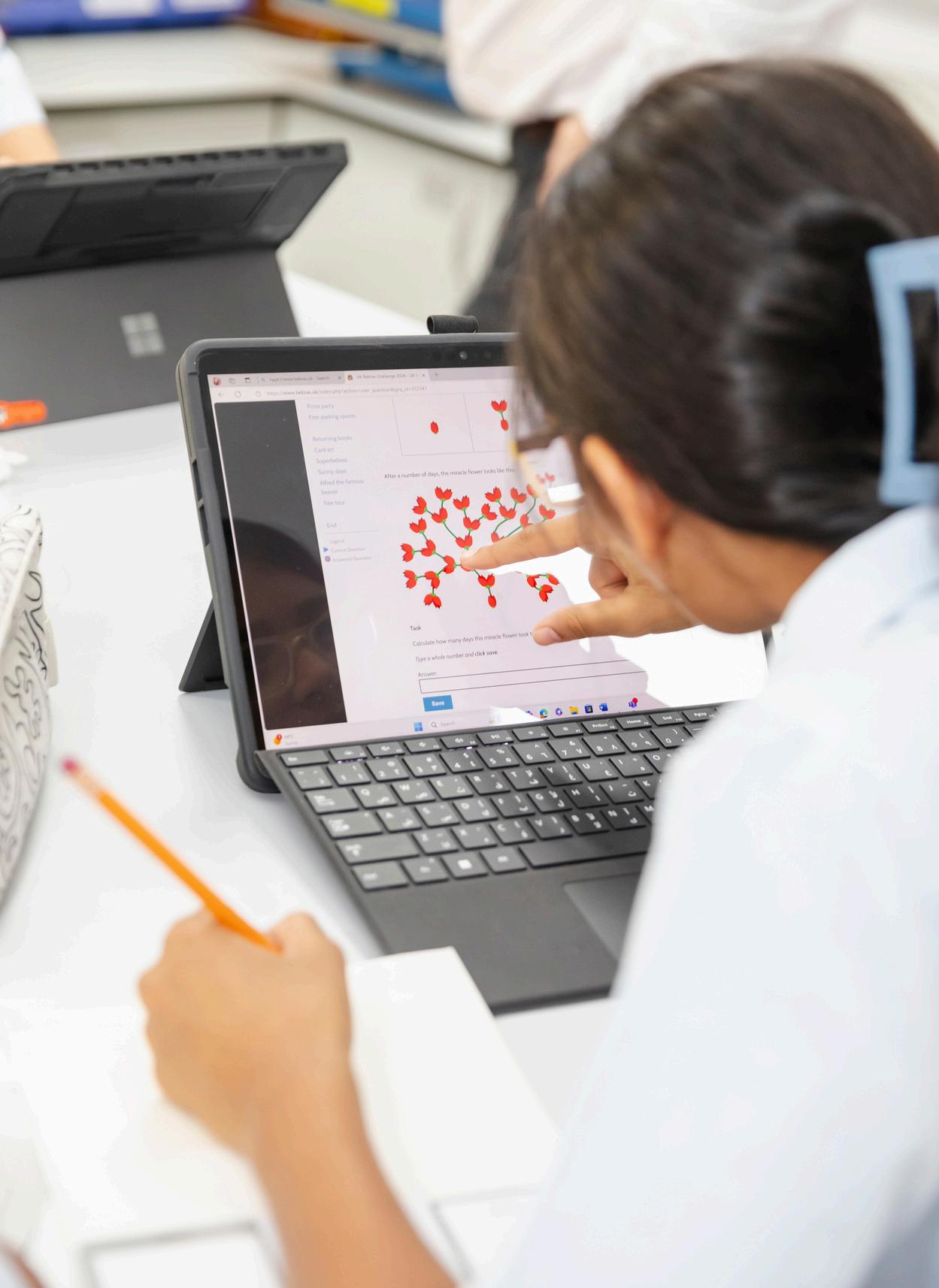
Examination Board : Cambridge iGCSE Design and Technology (Specification Here)
Why choose Design and Technology?
Design & Technology (D&T) is an exciting, progressive subject that enables students to actively contribute to the creativity, culture, wealth and wellbeing of themselves, the school and the wider community D&T teaches students how to take risks and become more resourceful, innovative, enterprising and capable. Students taking D&T will develop the ability to make aesthetic, economic, moral and technical value judgements. Using the latest forms of 3D CAD modelling, 3D printing and laser cutting, students will have the opportunity to develop their design concepts. For more information and what D&T is, please see the recommended video: What is D&T and why do we need it? - DTAssoc
What is the course content?
The core of D&T is based around the design process, where students will engage in:
Initiation and development of ideas, and recording data
Communication of design ideas
Use of technology in design and making
Practical design application
Environment and sustainability
In addition, student will engage in practical design application through a jewellery, speaker and prosthetics project
What skills will the students develop?
Creative problem solving - developing creative solution to complex problems
Communication –including sketching, computer aided design and physical concept models
Inquiry – exploring a range of material properties through practical application
Collaboration – working in design teams to develop solutions, replicating the real-world design industry
Technical – using a range of tools and machines accurately. Various machines include 3D printers, CNC router, laser cutters etc
Analysis of products in terms of their cost and impact on the environment Students will apply their knowledge and understanding of mathematical principles
What jobs/degrees are available to students who study your subject?
Design & Technology opens doors to a wide range of careers, including engineering, manufacturing, internet and communication technologies, architecture, product design, industrial design, marketing and many other creative and design related fields. Equally it provides students with transferable skills in problem solving and inquiry which can applied to careers in medicine, law etc.

Examination Board : Cambridge IGCSE Drama (Specification Here)
Why choose Drama?
“Creativity now is as important in education as literacy, and we should treat it with the same status ” (Sir Ken Robinson)
IGCSE Drama has a unique role in giving young people the chance to experience and experiment with a role and a viewpoint that may not be their own, but nonetheless valid Drama gives them the skills to shape and communicate their understanding in a creative and engaging way As well as developing confidence and enhanced performance skills, Drama provides an exciting opportunity for students to become accomplished collaborators, equipping them with a valuable skillset for the future. For more information on IGCSE Drama, please see the recommeded video: iGCSE Drama in action at JESS
What is the course content?
We shape the course content to reflect current events: nothing is prescribed. This gives us the freedom to respond to the students’ interests so that we can create a bespoke experience for each cohort.
How will you be assessed?
Three practical pieces of coursework, each worth 60% of the final grade:
A piece of devised work which is created in groups 1
An extract of script moved from page to stage in groups 2
An individual monologue. 3.
The final 40% of the Level is derived from a written exam in two sections:
Part 1 is based on two play extracts. Students will explain their ‘page to stage’ ideas as Actor, Director or Designer. 1.
Part 2 is where students will explain and justify their ideas for an original devised piece of theatre 2.
What skills will the students develop?
60% Practical Assessment
40% Written exam, explore acting, Directing and design.
Students will develop a number and variety of transferable skills including the ability: to think creatively to collaborate effectively to generate and explain ideas to present confidently to project manage and work to a time limit to creatively and diplomatically solve problems as they arise.
What jobs/degrees are available to students who study Drama?
Drama opens a wide range of opportunities for students pursuing any profession, from law to medicine and business as well as those looking to pursue a career in the entertainment industry.

Examination Board : Edexcel IGCSE Economics (Specification Here)
Why study Economics?
Economics is based on how society tackles the problem of infinite demands and scarce resources. Every individual would like a better car, clothes or holidays and governments would like to spend unlimited amounts on healthcare, policing and education This is impossible, so individuals and societies make choices on how best to allocate resources to maximise their benefits Economics investigates how consumers, producers and governments tackle this problem.
What is the course content?
The Market System
•Demand and supply
•The role of the market in solving the economic problem
•The labour market
Business Economics
•Production
•Competition
•Public & private sectors
How will the students be assessed?
Government and the Economy
•The macroeconomic objectives
•Policies to achieve the objectives
•Relationships between objectives and policies
Global Economy
•Globalisation
•International trade
•Exchange rates
Students will be tested on their knowledge, understanding, application, analytical and evaluation skills in Paper 1: Microeconomics and Business Economics and Paper 2: Macroeconomics and the Global Economy Each paper will have a variety of questions including MCQs, 2 and 3 mark definition questions, calculation questions, diagram drawing and analysis and evaluation essay style questions worth up to 12 marks.
What skills will the students develop?
This qualification enables students to:
develop an understanding of economic concepts and applying these to real-life situations ·calculate, interpret and evaluate economic data to make reasoned and informed judgements ·develop awareness of economic change and its impact on developing and developed economies ·understand economic issues, problems and possible solutions that affect mixed economies participate effectively in society as citizens, producers and consumers
What jobs/degrees are available to students who study your subject?
The current top UK universities for studying Economics related degrees are Cambridge, Oxford, St Andrew’s, Warwick and the London School of Economics Further afield, Harvard, Yale, MIT, Stanford, University of California (Berkeley) in USA and Bocconi University in Italy, University of Zurich, Switzerland and Tilburg University in The Netherlands are excellent for Economics courses
Economics is an increasingly popular subject. There is strong demand for graduates with Economics degrees and the widely transferable analytical and problem-solving skills they develop opens doors, regardless of the industry Possible jobs are economist, banker, accountant, financial planner, economic researcher, financial consultant, investment analyst, actuary and many public sector roles
Examination Board : Cambridge IGCSE French (Specification Here)
Why study French?
Studying French allows students to develop many important lifelong skills Students learn how to communicate in a foreign language and gain a valuable insight into another culture Learning a language provides students with a sense of fulfilment and intellectual stimulus as well as opportunities to acquire skills in interpreting information, presenting, problem solving and paying attention to detail. Learning a language can also boost personal confidence, independence and develop a sense of resilience.
What is the course content?
Five themes form the focus of learning:
Everyday Activities – health, travel, food and drink
Personal and Social Care – family, friends, home, leisure time and clothes
World Around Us – environment, technology, urban areas and shopping
World of Work – education and work
International World – culture, nationalities and languages.
How will the students be assessed?
Students are assessed in 4 skills
• Comprehension multiple choice and matching questions
• Multiple choice, matching questions and questions requiring short answers
What skills will the students develop?
• One role-play and conversations on two topics
• One form filling task, one directed writing task and one extended writing task
Students develop the ability to communicate effectively in the target language and an awareness of the nature of language learning. Transferable skills such as analysis, drawing reference and memorising form an important part of learning and students have many opportunities to work collaboratively, developing competences in enquiry, critical thinking and communication Students lead and participate in discussions whilst also developing skills in gathering, assessing and interpreting information
What jobs/degrees are available to students who study your subject?
Language skills can lead directly into a career in translating, interpreting or teaching, and are also in demand in areas such as hospitality, law, publishing and business Careers in the diplomatic service and telecommunications often require an aptitude for languages and others that would make direct use of your language skills include journalism, marketing and tourism.
Examination Board : Edexcel IGCSE in Geography (Specification Here)
Why study Geography?
“Geography is the subject which holds the key to our future” Michael Palin
Geography helps to make sense of the world around us. It is hands on, relevant, and fun! Geography offers a good mix of topics such as urban issues, world development, extreme environments, rivers and hazards. The course offers the chance to get to grips with some of the big questions affecting our world, and to understand the social, economic and physical forces and processes shaping our world
What is the course content?
Physical Geography (two from three options below in addition to fieldwork practice in one topic)
River Environments
Coastal Environments
Hazardous Environments
Human Geography (two from three options below in addition to fieldwork practice in one topic)
Economic activity and energy
Rural environments
Urban environments
Global issues (Fragile environments and climate change, Globalisation and migration, Development and human welfare)
How will the students be assessed?
There are two assessments in iGCSE Geography, made up of a mixture of multiple choice, short answer, data-response and open-ended questions. There is no coursework element, however, fieldwork will be completed, and students will apply their knowledge of skills covered and techniques used to present information in aspects of the examination
Paper 1 (40%) Physical Geography – 1hr 10 mins
Paper 2 (60%) Human Geography – 1hr 45 mins
What skills will the students develop?
Geography students will obtain a variety of interdisciplinary skills Some of the subject-specific skills honed by studying Geography include the ability to think ‘spatially’ across multiple scales, preparing effective maps, diagrams and visualisations, conducting fieldwork and field data collection Students will also develop general skills, such as developing a reasoned argument, critical thinking, considering for moral and ethical issues, teamwork, communication, project management and problem solving.
What jobs/degrees are available to students who study your subject?
Geography students are amongst the most employable in the job market meeting many of the criteria employers are looking for including the ability to interpret data, make evaluated decisions and address the need to think internationally in an ever more globalised world.
Studying geography opens-up a wide range of degrees and careers Jobs can be found in these sectors: law and finance, environment and sustainability, physical systems, business, geographical techniques, development and global issues, settlement, travel, tourism, leisure and culture
Examination Board : Edexcel IGCSE History (Specification Here)
Why study History?
“History is truly the witness of times past, the light of truth the teacher of life ” (Cicero, 55 BCE)
History is not only what happened in the past, but a way to see where we come from and to find out where we're going. Only by looking at the past can we make sense of the present and strive towards a better future. The idea of argument, debate and critically questioning information presented to us is increasingly being lost beneath a sea of quick replies and clickbait headlines History offers students the ability to evaluate the world around us, to sort the true claims from the false and to see the justice and the injustice It also helps students to become comfortable with the idea that there isn’t always a definitive answer to something – there are often multiple answers depending on your perspective.
What is the course content?
The USA 1918-41
Boom and bust, the story of the Roaring Twenties and the aftermath of the Great Depression.
Germany 1918-45
How Germany rebuilt itself into the Weimar Republic after the First World War, the problems it suffered in the 1930s and the rise of the most infamous dictator of all Adolf Hitler Superpower Relations 1945-73
The Cold War in all its glory – the Korean War, Hungarian Uprising, Berlin Wall, the Cuban Missile Crisis and everything in between. Changes in Medicine 1848-1948
Examines medical pioneers who take us from medicine based more on luck than science in 1848 through to the modern foundations of surgery, medicine and Public Health
How will the students be assessed?
There are two assessments in IGCSE History, each worth 50% of the marks. The 4 topics are split equally between the two papers as follows:
Paper 1: Depth Studies (1h 30 min): Germany 1918-45; Superpower Relations 1945-73
Paper 2: Investigation and Breadth Studies (1h 30 min): The USA 1918-45; Changes in Medicine 1848-1948
What skills will the students develop?
History above all develops the ability to create an argument, rooted in evidence It helps you to understand multiple perspectives and see events from different points of view, before coming to your own judgement about these pivotal events in our history. Critically analysing information to work out the message and how valuable it actually is runs throughout, as does the ability to compare and contrast the similarities and differences between pieces of evidence. Many of these skills cross over to multiple areas which will help you whatever your path in future – critical thinking, teamwork, communication, problem solving as well as the ability to present and the tenacity to defend your point of view from criticism
What jobs/degrees are available to students who study your subject?
Careers in law, broadcasting, international relations, finance, creative arts directors, writers and actors, as well as authors, politicians and teachers all await History students History is a fantastic facilitating subject – it is seen by many as a challenging subject, so it shows off the academic abilities of students

Examination Board : Edexcel GCSE (Specification Here)
Why study Music?
GCSE Music is a very varied, practical and exciting option to take that provides a real music focus. Music is about developing your performance skills, composing your own music and learning about different styles of music If you enjoy listening to Music or playing an instrument you will enjoy the subject It allows you to focus on the music you enjoy listening to and playing The emphasis of the course is as much on developing lifelong musical skills as on acquiring knowledge. GCSE Music offers students the opportunity to develop their own practical musical skills through performing and composing and appraising.
Listening and Appraising: Listen to and learn about music from a wide range of periods, styles and major world cultures. Students will develop awareness and understanding in relation to Music for Stage and Screen, Vocal Music, Fusions and Instrumental Music. Develop skills in performing music, both individually and in a group with other musicians Develop skills in composing music in a style of their own choice using both instruments and software
How will the students be assessed?
Component 1: Listening Paper (40%)
Listening and appraising exam to demonstrate skills through the study of music across a variety of styles and genres. Students will be assessed on eight setworks
Component 2: Performing (30%)
Students are required to submit two performances, at least one minute each and combined four minutes. One solo piece and one ensemble piece
What skills will the students develop?
Component 3: Composing (30%)
Students must compose two pieces (3 minutes for both)
Composition 1: Set brief Composition
Composition 2: Free choice Composition
GCSE music involves written, analytical, practical and social/personal skills such as: independent learning, having to be disciplined about practicing on their instrument or voice, team working, performance and presentation skills which are useful for any career, listening skills, analytical skills, confidence and selfesteem, creativity and self-expression. GCSE Music will help you develop and show employers you have a wide range of interests and skills, as well as demonstrating that you have shown dedication and commitment to learning a musical instrument and to studying music GCSE Music can also help with confidence and performance skills needed in situations such as job interviews Creativity is going to be one of the most in-demand skills at work
What jobs/degrees are available to students who study your subject?
Being a musician isn’t the only career - options include a sound technician, community musician, music therapist, teacher, or private tutor, careers in the industry, concert hall or music venue You could also work in the creative industries in film and TV. Music is highly regarded as an academic subject and so could complement your other studies in leading to a professional career such as medicine law and accountancy.
Examination Board : Edexcel GCSE Physical Education (Specification Here)
Why study Physical Education?
“Educating the mind without educating the body is not education at all.” (Aristotle).
If you enjoy playing sport to a high standard and want to learn about Sports Science, studying GCSE P E would be a great option for you The course offers an excellent insight into the theoretical and physiological concepts associated with sporting performance. The course goes on to look at the psychological components which help to analyse and improve the performance of yourself and others. The theory element of the course provides an excellent foundation for those students considering studying the BTEC Diploma in Sport or the IB DP Sports, Exercise and Health Science course, and to go on to a sports related career The diversity of PE as a subject makes it a perfect choice for someone who can apply themselves both practically and theoretically to sport.
What is the course content?
The course allows pupils to focus upon developing their practical performance, theoretical knowledge, and their ability to analyse sporting performance and focuses on the following units:
Practically, students will be given the opportunity to develop their skills in a range of activities during lessons and are encouraged to develop these further outside of school.
How will the students be assessed?
70% Theory, 30% Practical
Component 1: Written paper – Fitness & Body Systems (36% of qualification) 1 hour 30 minutes
The assessment consists of multiple-choice, short-answer, long-answer and one extended writing question
Component 2: Written paper – Health & Performance (30% of qualification) 1 hour 15 minutes
The assessment consists of multiple-choice, short-answer, long-answer and one extended writing question.
Component 3: Practical Performance (30% of qualification)
The assessment consists of students completing three physical activities from a set list (this can be found in the specification link at the top of this page)
One must be a team activity
One must be an individual activity
The final activity can be either team or individual
Component 4: Personal Exercise Programme (PEP) (10% of qualification) Internally marked coursework
The assessment consists of students producing a Personal Exercise Programme (PEP) and will require students to analyse and evaluate their performance
Current Year 9 JESS students will be advised as to their suitability for joining the course Students joining JESS at the start of Year 10 will go through a practical screening process within the first two weeks of the course. If a student does not demonstrate the necessary practical competencies this would be further discussed with the student and their parents.
What skills will the students develop?
IGCSE PE students will develop a range of practical components which focus on performance of sport specific technical skills, and knowledge, understanding and application of tactical skills. Teamwork, communication, and leadership skills will also be developed. Students will learn how to analyse their own performance and synthesise ideas to aid improvement Students will also have the opportunity to develop their inquiry and critical thinking skills through project-based practical investigations
What jobs/degrees are available to students who study your subject?
Given the diversity of the subject, studying P.E. and Sports Science opens-up a wide range ofdegrees andcareers, for example, exercise physiologist, physiotherapy, sports medicine, nutritionist, sports business and marketing, sports psychology, coaching and performance analyst, sports technology and innovation
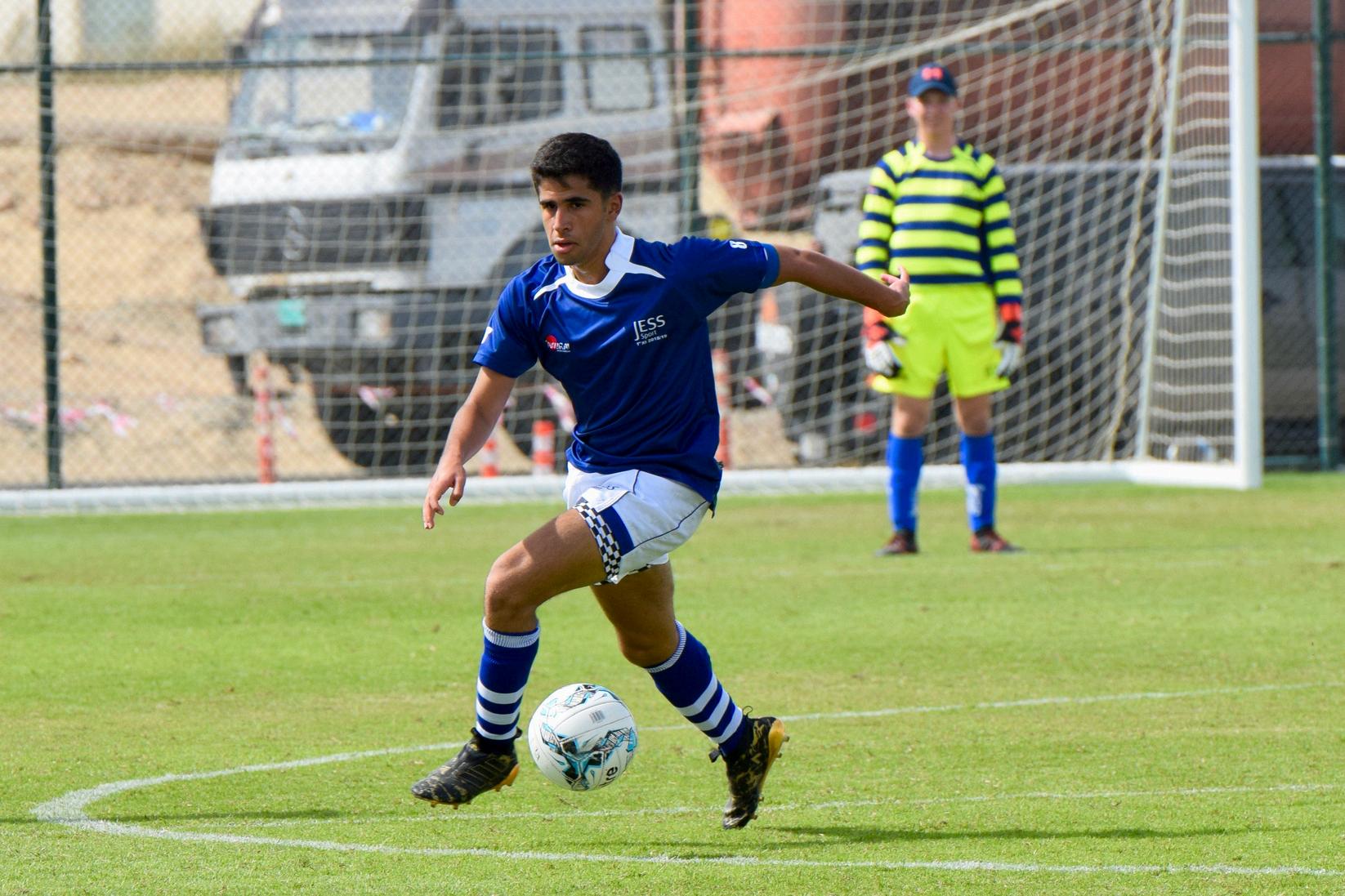
Examination Board : AQA GCSE Psychology (Specification Here)
Why study Psychology?
“When we are open to new possibilities, we find them Be open and sceptical of everything ”
Todd Kashdan
Studying Psychology will allow students to explain behaviour from a biological, cognitive and sociocultural perspective It will teach students to be more understanding of why people behave like they do and improve relationships with others and oneself Key skills gained include scientific report writing, statistical analysis, analytical thinking, critical writing and ethical consideration - all hugely transferable
What is the course content?
Topic 3: Developmental Psychology
Topic 4: Research Methods
How will the students be assessed?
6: Language, Thought and Communication
Topic 7: Brain and Neuropsychology
Topic 8: Psychological Problems
At the end of Year 11, students will sit two exams. Each paper is 1 hour and 45 minutes and worth 100, divided into 4 sections, each worth 25 marks. There will be a mix of multiple choice, short answer and long answer questions Most long answer questions require a combination of explanation, application and evaluation Both papers are weighted 50% of the final grade awarded
What skills will the students develop?
Knowledge and understanding of human behaviour and motivation
Written and verbal communication, plus presentation skills
Team collaboration
Handling data and statistics
Analytical research
Problem solving
Application of research
Information technology
What jobs/degrees are available to students who study your subject?
Traditional pathways include clinical psychologist, educational psychologist, developmental psychologist, forensic psychologist, health psychologist, occupational psychologist, counsellor, sport psychologist, academic psychologist Others include recruitment and HR, government and administration, law, education, charity and not-for profit, business and marketing, finance & IT
Examination Board : Edexcel IGCSE French (Specification Here)
Why study Spanish?
Learning a language helps you build on, and develop new skills beyond the classroom. Spanish is the second most spoken language in the world, and it is the most spoken language in the Americas It’s the official (or co-official) language in Spain, most countries in Central and South America and several Caribbean countries. It’s a useful language to know when doing business with Spanish or Latin American firms, and a great way to strengthen your resumé and improve your career prospects. In the United States alone there are over 50 million people who speak Spanish as their native or second language
What is the course content?
Five themes form the focus of learning: These themes form the focus of learning:
Home and abroad
Education and employment
Personal life and relationships
The world around us
Social activities, fitness and health
How will the students be assessed?
Students are assessed in 4 skills
Listening (25%)
• Multiple choice, gap-fill and notetaking questions.
• All questions and answer in Spanish
Reading (25%)
• Multiple-choice, note-taking, gap-fill and short-answer question
• All questions and answer in Spanish
What skills will the students develop?
Speaking (25%)
• Describing and answering questions about an image
• General conversation
Writing (25%)
• 2 open writing tasks
• Grammar gap fill
Students develop the ability to communicate effectively in the target language and an awareness of the nature of language learning. Transferable skills such as analysis, drawing reference and memorising form an important part of learning and students have many opportunities to work collaboratively, developing competences in enquiry, critical thinking and communication Students lead and participate in discussions whilst also developing skills in gathering, assessing and interpreting information.
What jobs/degrees are available to students who study your subject?
Language skills can lead directly into a career in translating, interpreting or teaching, and are also in demand in areas such as hospitality, law, publishing and business. Careers in the diplomatic service and telecommunications often require an aptitude for languages and others that would make direct use of your language skills include journalism, marketing and tourism.

In some subjects, the final grade is achieved solely by sitting written examinations, whereas others use a combination of written examinations and coursework completed during the two years of study Coursework demands vary between subjects
Students are awarded Levels on the scale 9-1 (9 being the highest, 1 being the lowest). Levels 9-4 are considered pass grades
The examination boards we are registered with are:
Edexcel - Pearson Qualifications qualifications.pearson.com
AQA - Assessment and Qualification Alliance aqa.org.uk
CIE - Cambridge International Examinations cie org uk
Additional information about subject specifications can be viewed on the websites listed above or using the link on each subject page.
The purpose of access arrangements is to remove barriers that may prevent students with specific needs reaching their full potential. Examination boards must authorise individual access arrangement applications where a student meets their specific criteria. Examples of the arrangements available include extended time, a scribe, a prompt, or rest breaks. The Oasis Department monitor the needs of students on an individual basis and contact parents if a student is entitled to access arrangements
We run an adapted curriculum to accommodate the time to support these students if it is appropriate for them. To fit this, one of the option choices is used for a programme of Directed Studies which is different for each student. This is considered on an individual basis and should be discussed with Mrs. Lynch (blynch@jess.sch.ae) and Mrs. Sargeant (bsargeant@jess.sch.ae)
Examination fees are payable upon confirmation of the examinations being taken by the student. Parents will be invoiced by the school (added to the school fee invoice) in the third term in Year 11 Currently, the fee range is AED500 to AED1000 per subject Variation in fee structure is dependent on the nature of the course and is controlled by the examining body The fee for the BTEC Science Certificate in Applied Science is AED 1,458.
Do my choices have to fit into blocks for timetabling?
No, your initial choices have no restrictions so you can pick any subjects and we will try to build a timetable to fit all choices If this is not possible then we will speak with you directly Around the start of the summer term we will formally confirm your subject choices
Can I change my mind after the February deadline?
Yes, you can request to change your option choices after January 26th 2024, but it may not be possible if it doesn’t fit on the timetable or the class you want to go into is full Once you start the subject in September you will have a two-week window to swap, if you realise that you made a mistake in choosing a subject. However, it may not be possible if it doesn’t fit into your timetable or the class you want to go into is full If you wish to make a change you will need to complete the following forms HERE
How do coursework grades tie into the final examination grade?
From the individual subject information, you will see that different subjects allocate different marks to examinations and coursework The coursework is marked by the class teacher but is moderated by an external examiner Examinations are all marked by external examiners The final percentage is arrived at according to the percentage breakdown of course and examination work for that subject.
Do I have to do English Language and English Literature?
Yes, students complete both English Language and English Literature, achieving two separate IGCSE grades.
Do I have to take Arabic?
Yes, all students study Arabic in Y10, either A or B. Students who have opted to continue their study of French or Spanish will be able to either opt out of Arabic B in Year 11, or continue with Arabic to achieve an additional Arabic GCSE. Those that opt out will spend the time in support sessions or supervised study Students who did not select French or Spanish as a GCSE option will be expected to complete the Arabic course
Do I have to do a Foreign Language?
Yes, either French, Spanish or Arabic You may study more than one To proceed on to the post-16 IB Diploma Programme you are strongly recommended to complete a foreign language course at GCSE
How do I find out about new subjects like Business Studies, Economics, P.E. and Psychology?
Heads of Department for new subjects have presented to students this term. This took place during assemblies and mentor time At the PTC in January, staff will be available to share more about their subjects
What if I feel that 8 subjects are too many?
You should speak with Mrs Sargeant in the Oasis about whether Directed Studies would be more appropriate, instead of one of your options, to give you additional time to do your work
Can I get more than 10 GCSE qualifications?
Most students study for 8 GCSEs in Year 10 but additional qualifications can be achieved if you are selected for separate science or study an additional Mathematics GCSE
How can I get advice?
The Year 9 pastoral team will be leading this process and are available by email or on Teams to give advice on choices. You can contact Bryony Lynch blynch@jess.sch.ae or Graham Black gblack@jess.sch.ae to ask questions or request to meet.
Driven by our values
